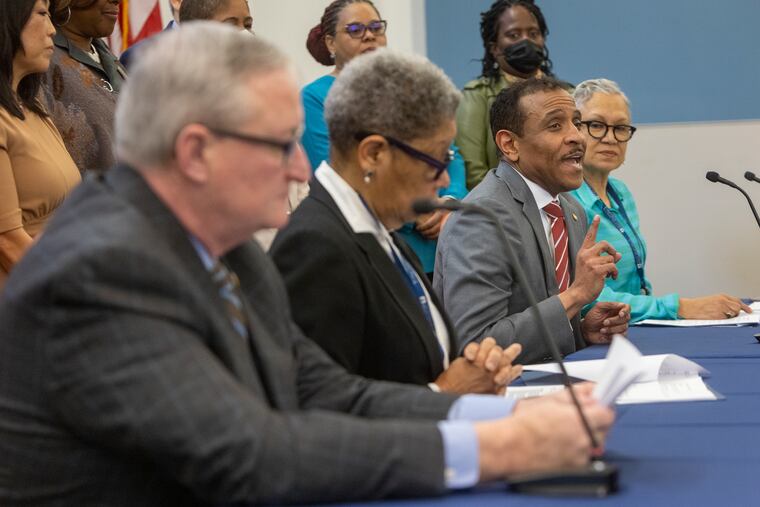New superintendent needs to focus on transparency, infrastructure, and rebuilding trust to succeed | Editorial
The new superintendent, while not responsible for creating the challenges facing the district, will nevertheless need to play a leading role in ameliorating them.

In the coming days, the Board of Education is expected to announce the School District of Philadelphia’s new superintendent, the successor to William R. Hite Jr., who served in the role for nearly a decade.
Near the top of the next superintendent’s to-do list is repairing a broken relationship between the district and its workforce and parents. In 2020, the district’s principals’ union declared a lack of confidence in Hite’s leadership, and in August, school board president Joyce Wilkerson admitted that addressing the tension was “a work in progress.”
The next superintendent, while not responsible for creating these issues, will nevertheless need to play a leading role in ameliorating them. This will take a commitment to transparency, a detailed plan to deal with the district’s infrastructure issues, and the tact to navigate the important relationships with key constituencies, including the district’s parents and teachers.
» READ MORE: Who is going to be schools superintendent? A look at the three finalists
Transparency might be one of the most vital issues facing the new superintendent. From changing bell schedules to overhauling the admissions process for magnet schools, the School District has often been quick to act without first consulting the public and explaining its decisions.
It’s also essential that the next superintendent have a realistic plan for dealing with a backlog of maintenance and safety issues in schools across the district. Like most urban school systems, Philadelphia’s education system is not flush with cash. But the School District has access to additional funds as a result of federal investments, including $1.1 billion through the American Rescue Plan.
That money can help bring buildings up to proper standards, fix issues like lead in the drinking water in schools, and ensure that buildings are properly cooled and heated — but it’s crucial that the district make the best use of every dollar.
This board has previously questioned whether it is too much for one person to manage both the day-to-day operations of the system and provide oversight for the roughly four dozen capital and improvement projects that are currently underway in the district. It’s vital that the next superintendent delegate the latter to a senior member of their leadership team — even if that means creating a new administrative position to do so. This administrator should be both experienced in, and responsible for, maintaining and improving the physical condition of buildings. We can’t continue having the academic year start with schoolyards filled with trash bags, buildings closed because of hazardous conditions, and students sent home because it is too hot to learn.
» READ MORE: Lawsuit over equitable funding of schools reaches closing arguments
While Hite accomplished the difficult task of shoring up the district’s finances, he did so by making a series of drastic moves — including laying off 4,000 people and closing 20 schools — that strained his relationship with parents and the Philadelphia Federation of Teachers.
While school administrators and union leadership are bound to occasionally butt heads, there also needs to be some level of trust on both sides. It is critical that the next superintendent sees the unions as their partners in the effort to provide the best education for Philadelphia’s children. At the same time, the entire public school community should give the new superintendent a chance to earn their trust.
Building trust with those who have a stake in public education is not just good policy, it is also a pragmatic move for an appointee who isn’t guaranteed to remain in place after the city elects a new mayor next year; besides the potential electoral ramifications, the next superintendent could use allies in a city with which they are unfamiliar.
Public education is one of government’s most important responsibilities. The process of selecting a successor for Hite has faced plenty of criticism, including the lack of women among the finalists and the absence of finalists with strong local ties or knowledge of the district. That said, there were also many positives about the process, including its transparency and the extensive solicitation of public input — two traditional failings that the district has seemingly worked to rectify.
Whoever is chosen to lead the district, the city, our children, and our teachers need them to communicate, to provide a safe environment for teaching and learning, and most of all, to provide solutions they can trust.